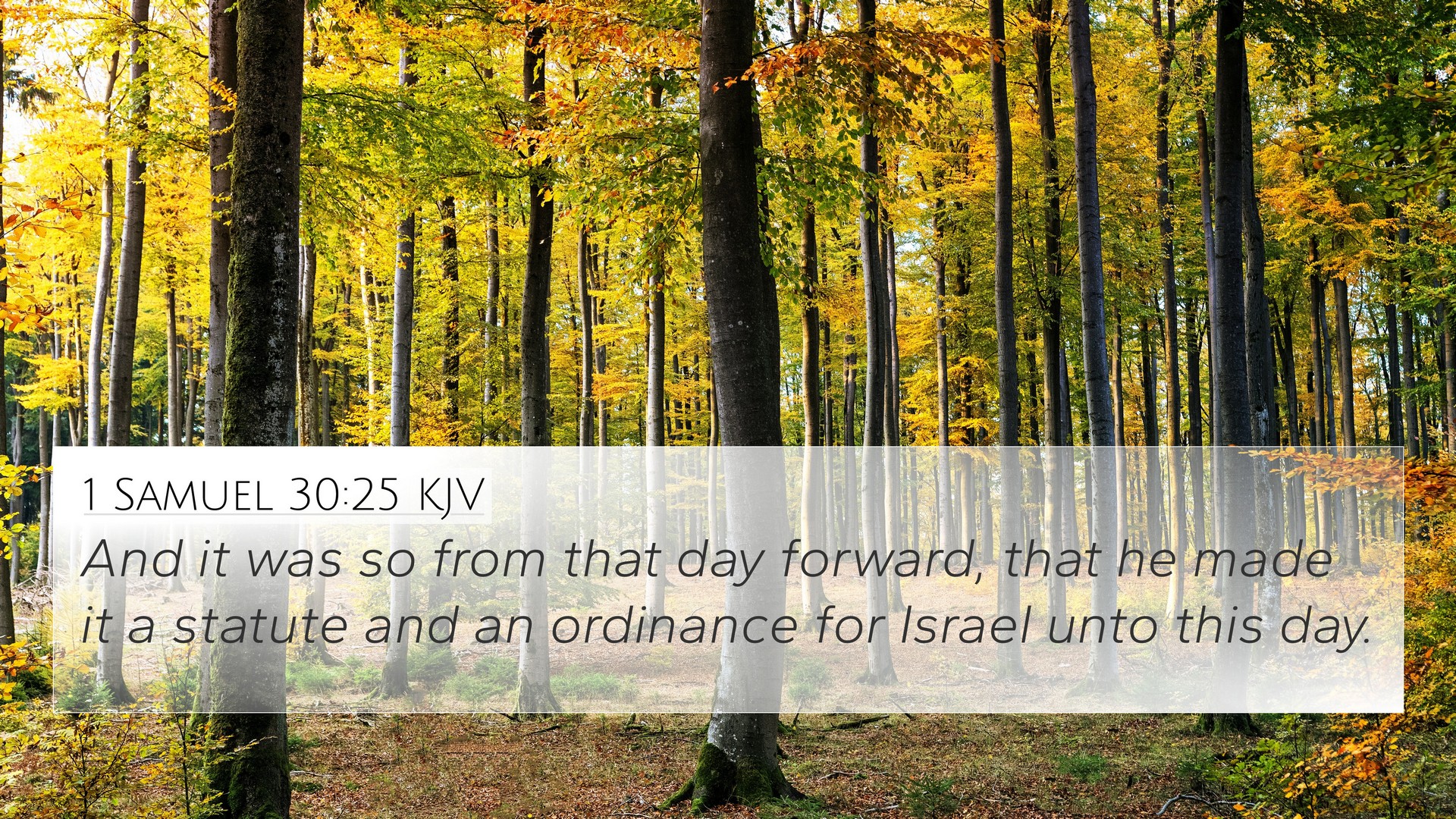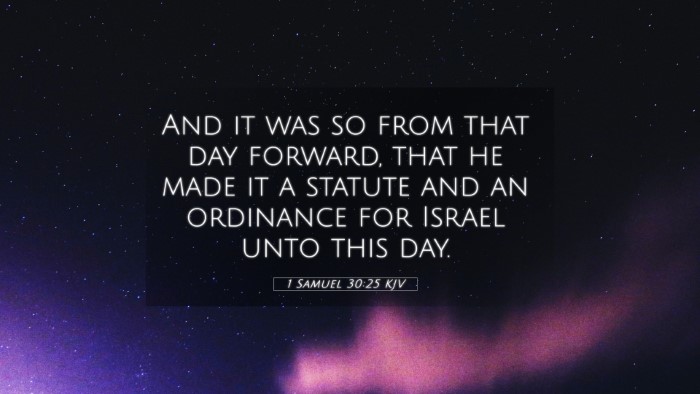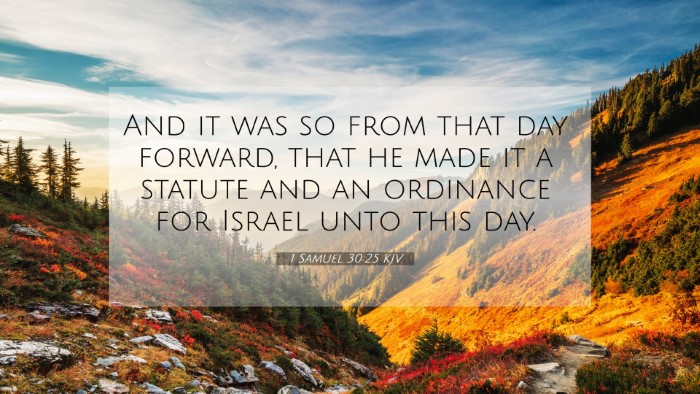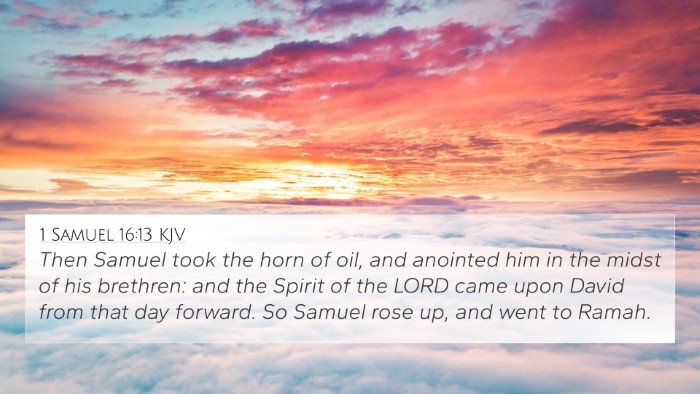Understanding 1 Samuel 30:25
Bible Verse: 1 Samuel 30:25 - "And it was so, from that day forward, he made it a statute and an ordinance for Israel unto this day."
Overview
This verse captures a significant moment in King David's leadership following a crucial victory. After reclaiming his wives and the plunder taken from Ziklag, David established a practice that would have enduring implications for Israel.
Meaning and Interpretation
The verse emphasizes the importance David placed on fairness and unity among his men after the battle. It signifies a moment of establishing precedence in leadership ethics.
Historical Context
David's rule over Israel was marked by military challenges; he faced adversaries from various quarters. Following the victory against the Amalekites, the establishing of this statute reflects a pivotal transition in his governance style
Commentary Insights
-
Matthew Henry's Commentary:
Henry notes that David's action illustrates his leadership style, which involved generosity and equitable treatment of his followers. This ordinance reflected David’s desire to foster loyalty and community.
-
Albert Barnes' Notes:
Barnes highlights that the statute reflects David's wisdom in governance, ensuring that all his men, regardless of their roles in battle, would share equally in the rewards, thereby promoting unity.
-
Adam Clarke's Commentary:
Clarke elaborates on the lasting impact of this decision on the society David governed, emphasizing that this ordinance would become part of Israel's judicial framework.
Key Themes
- Leadership and Responsibility: The actions of a leader have far-reaching effects.
- Unity in Community: Equal sharing of spoils maintains harmony and morale.
- Statute and Ordinance: The establishment of laws that reflect the values of the community.
Bible Cross-References
1 Samuel 30:25 can be cross-referenced with the following scriptures, illustrating thematic and narrative connections within the Bible:
- 2 Samuel 2:4: David was anointed king over Judah, reflecting the continuity of his leadership style.
- 1 Chronicles 12:38-40: The united support of David's followers indicates loyalty mirroring the community spirit established in 1 Samuel 30:25.
- Exodus 20:17: Even though directed at personal ethics, the importance of not coveting enhances the understanding of sharing fairly among men.
- 1 Timothy 5:18: The Biblical principle of fair compensation for labor resonates with David's statute on equitable sharing of spoils.
- Luke 6:38: The principle of giving and receiving, which is relevant in understanding David's equitable treatment of his men.
- Galatians 6:7-10: The truth that one reaps what one sows is reflective of David's inclusivity towards his warriors.
- Proverbs 11:25: "The liberal soul shall be made fat," which connects to the idea of generous treatment leading to community strength.
Application and Reflection
This verse challenges leaders to consider fairness and unity in decision-making. It invites questions such as:
- How can leaders ensure that all members of a team are valued?
- What practices promote unity and loyalty within a community?
- In what ways can statutes or ordinances reflect communal values?
Conclusion
The establishment of this ordinance under David’s reign not only served immediate purposes but also created a lasting legacy of fairness and community in Israel. By studying this verse and its context, believers can extract timeless principles of leadership, unity, and communal ethics that resonate through the ages.



